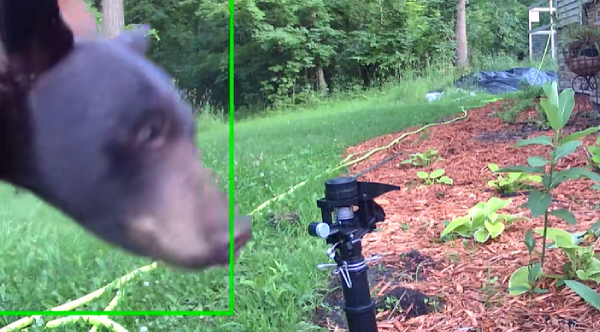An Earthquake Rattled His Store. Then He Noticed What The Sand Pendulum Created
September 21, 2016
When a magnitude 6.8 earthquake shook Olympia, Washington, in 2001, shop owner Jason Ward discovered that a sand-tracing pendulum had recorded the vibrations in the image below.

Credit: Jason Ward
For anyone wondering, this is how a sand pendulum works:
Ward says the rose-like shape was formed by the trembling pendulum during the 45 seconds the quake shook the Pacific Northwest.

Credit: Jason Ward
You can see two distinct pendulum motions here that relate to the type of seismic wave and their timing. The primary wave, or P wave, occurs first and is a short, vertical (up and down) movement. This is marked in the sand by the diamond shaped pattern in the background. Then there is pause (depending on how far you are from epicenter), giving the pendulum time to get back towards center. Then the secondary wave, or S wave, hits. The S wave is a more varied in its movements and last for a much longer time. This is the worm nest looking thing in the middle that has overwritten the center of the P wave pattern.
Click Here For The Most Popular On Sunny Skyz
 Couple Rescues Prairie Dog From Their Dog's Mouth, Then Decides To Adopt It
Couple Rescues Prairie Dog From Their Dog's Mouth, Then Decides To Adopt It
 My Girlfriend Gifted Me My FatherŌĆÖs Handwriting To Keep Forever
My Girlfriend Gifted Me My FatherŌĆÖs Handwriting To Keep Forever
 We CanŌĆÖt Stop Looking At These Adorable Baby Loon Photos Taken On A Lake
We CanŌĆÖt Stop Looking At These Adorable Baby Loon Photos Taken On A Lake
 This Couple Built A Grass Patch For Their Cat, And SheŌĆÖs Obsessed With It
This Couple Built A Grass Patch For Their Cat, And SheŌĆÖs Obsessed With It
 This All-Black ŌĆśGoth HouseŌĆÖ In Indiana Is Going Viral. Wait Until You See The Inside
This All-Black ŌĆśGoth HouseŌĆÖ In Indiana Is Going Viral. Wait Until You See The Inside
 Meet Igor: The Fluffy Poltergeist Dog With The Most Unhinged Adoption Bio Ever
Meet Igor: The Fluffy Poltergeist Dog With The Most Unhinged Adoption Bio Ever
 Baby ElephantŌĆÖs Trunk Steals The Show In Adorable Treat Time Video
Baby ElephantŌĆÖs Trunk Steals The Show In Adorable Treat Time Video
 What Happens When A Man With A Hose Meets A Group of Kids? Pure Magic
What Happens When A Man With A Hose Meets A Group of Kids? Pure Magic
 Chicken Or Pigeon? The Internet CanŌĆÖt Believe This Bird Is Real
Chicken Or Pigeon? The Internet CanŌĆÖt Believe This Bird Is Real
 Mom Surprises 4-Year-Old Son With First Apartment After 14 Months In Homeless Shelter
Mom Surprises 4-Year-Old Son With First Apartment After 14 Months In Homeless Shelter
 Bear Vs. Sprinkler: Hilarious Garden Moment Caught On Camera
Bear Vs. Sprinkler: Hilarious Garden Moment Caught On Camera
